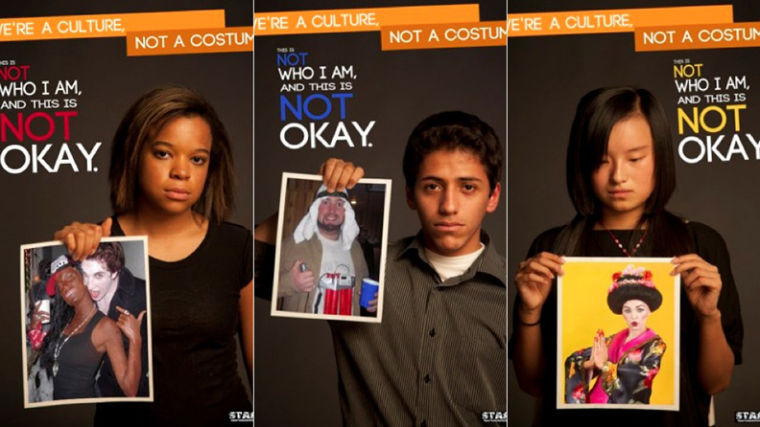Students weigh options for Halloween costumes, good or bad
October 23, 2013
When October comes around, many college students in America are faced with several questions, such as what pumpkin infused food/beverage will be popular this year and what costume to choose for Halloween.
With the internet at our disposal, countless costume tutorials are available on YouTube, Pinterest and Tumblr, so picking a costume is rather easy. Stores like Wal-mart and Target also flood their shelves with Halloween costumes and accessories at low prices for people’s convenience.
However, the time has come to have a conversation about the costumes and get-ups that people wear during Halloween. Halloween is notorious for offensive and risqué costumes such as the “sexy nurse, sexy secretary, or sexy librarian.”
These costumes make light of the sexual harassment and discrimination issues that nurses and other women and men in the workforce face everyday.
They may seem like they play on innocent fantasies, but these one-dimensional representations undermine these professions by depicting them in a purely sexual manner.
A student organization at Ohio University called STARS (Students Teaching Against Racism) started a campaign in 2012 called “We’re a culture, not a costume” where they began a dialogue at their university about cultural appropriation and how hurtful the different stereotypical Halloween costumes are that show up every year.
The STARS students took photos of their members holding up pictures of the costumes that people usually wear to represent their culture and spread them around campus. For example a Mexican male was represented by wearing a sombrero and holding a lawn mower, an Asian woman was represented as a geisha, a middle-eastern man as a bomb yielding terrorist and a black man as a gun-toting thug.
This is not new, we all have seen these costumes at parties and in the stores, yet we have accepted them. These costumes may seem harmless but they nurture racist stereotypes as well. They compartmentalize a culture without allowing discussion of what the culture is really like.
In order to avoid stereotypes and cultural appropriation, get creative. Stay away from department store costumes if you can and instead make your own costumes. Whether they’re from fairy tales, current television, internet memes or just your own imagination, find costumes that can showcase your talent and sense of humor without being racist.



